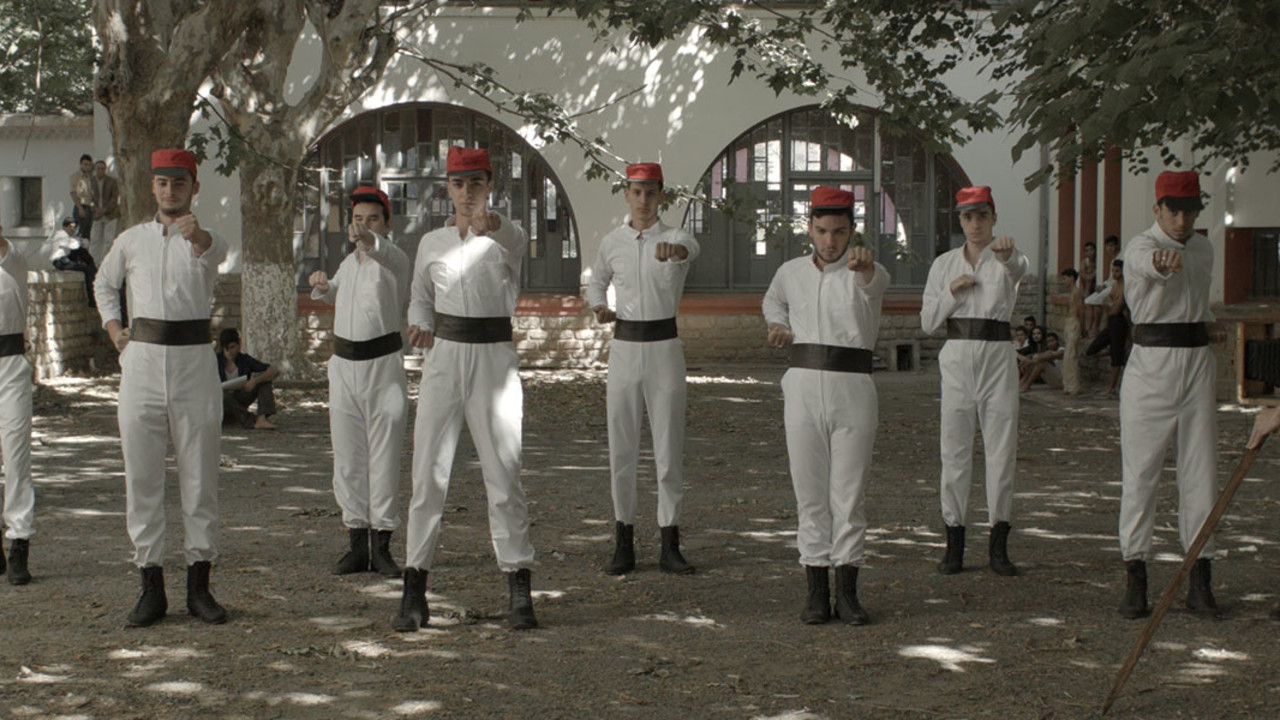Narimane Mari explores the legacy of colonization through a portrait in three acts — filmed in Algeria, on Kythira Island, and in Greece — of the far reaches of imperialism, history, and, ultimately, the dogged work of revolution.
After the success of her award-winning first feature, Bloody Beans, filmmaker and producer Narimane Mari continues to explore the legacy of colonization through play with form and performance — and her signature comic touches.
Structured over three acts — and filmed, respectively, in Mari's native Algeria, on Kythira Island, and in the Prosfygika neighbourhood of post-economic-collapse Greece — Le fort des fous shifts tones and temporal spaces to create a contemporary portrait of the far reaches of imperialism, history and, ultimately, the dogged work of revolution. From its luminous opening — a period piece set in colonial-era Algeria where those in power speak in a muddled tongue only they understand — Mari shifts to a documentary-style exploration of a band of utopians who resist imperialist rule by mapping their own relationships to the land.
In the final chapter, Mari breaks from the prior visual beauty and inserts herself into the film as she interviews anarchists and agitators in Greece. These discussions, filmed in stationary single takes in harsh digital, act as a politically charged aesthetic choice that interrogates the role of bearing witness and listening in disrupting the patterns of the past.
Complex and layered, Le fort des fous evokes the presence of colonialist history in the present moment, underlying that, as one interviewee says: "Barbarians exist in the modern world."
KIVA REARDON
Screenings
Jackman Hall
Scotiabank 6
Bell Lightbox 4
